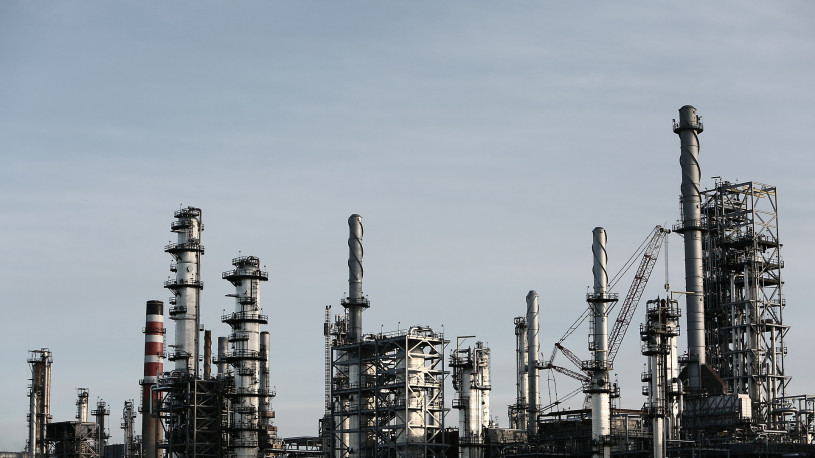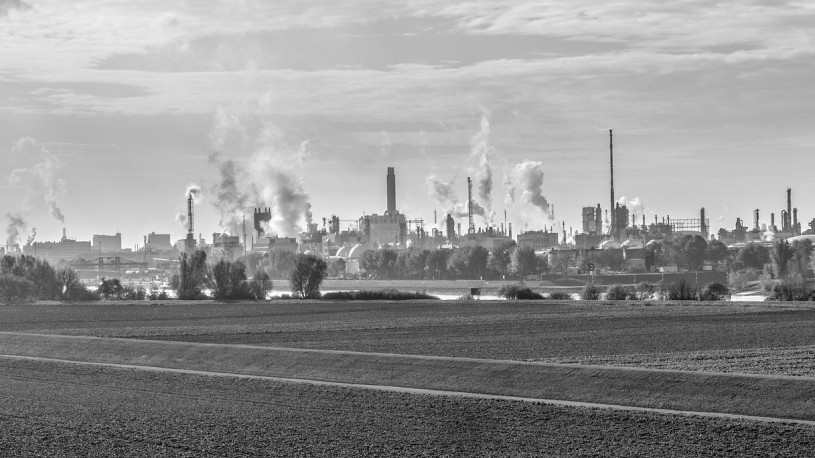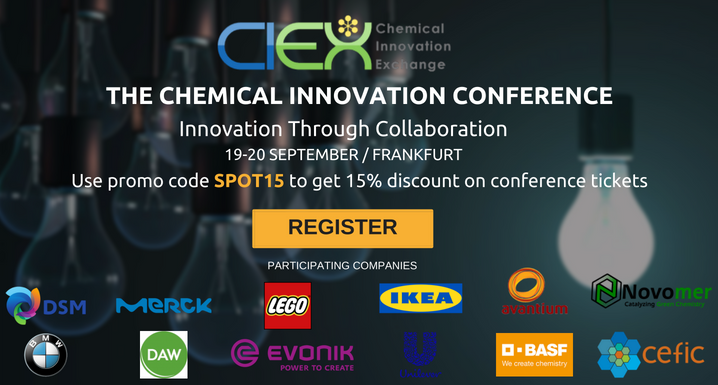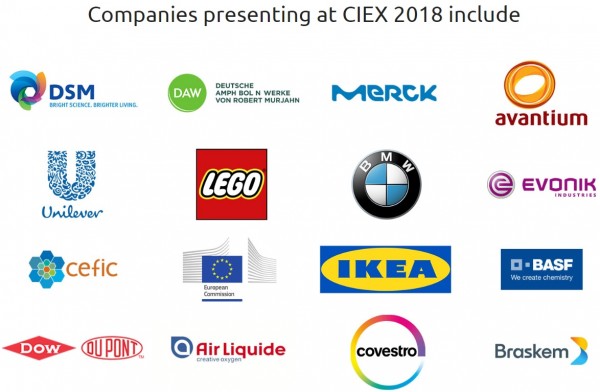-
The Chemical Industry’s Top 5 Most Used Buzzwords
 Continue Reading
Continue ReadingBuzzwords and business go hand in hand.
But don’t worry if this isn’t your field of expertise, because the ‘Dilbert Gobbledygook Generator’ is on hand to help. At the click of a button it creates phrases such as ‘Refigure real-time bottom line metrics’, ‘Implement end-to-end scalable interface’, and ‘Optimize efficient client models’, so you can impress colleagues at your next meeting.
Dilbert, the infamous cartoon businessman, is well-known for his love of buzzwords, as one of his comic strips from 1994 reads:
Colleague to Dilbert: Here’s your “Buzzword Bingo” card for the meeting. If the boss uses a buzzword on your card, you check it off. The objective is to fill the card.
Boss at meeting: You’re all very attentive today. My proactive leadership must be working
Dilbert: Bingo, Sir.Love them or hate them, business buzzwords will always be here, and nowhere more so than the chemicals business. So, whether you are into ‘blue skies thinking’ or ‘corporate synergy’, here are the top 5 chemical industry buzzwords.
1. Sustainability
Modern industry understands that nothing lasts forever: unless of course it is a sustainable source of raw materials. As the chemical industry increasingly strives to take a stand in the ‘circular economy’ the use of the word ‘sustainability’ will long remain in the chemical supplier’s lexicon.
In fact, you can’t overuse the buzzword ‘sustainable’. Which is quite poetic, really.2. Innovation
The concept of ‘innovation’ is simply ‘using your brain to improve something’.
Whether you believe in the words of Isaac Newton who described his theories as a result of ‘standing on the shoulders of giants’ or the lyrics of the band Barenaked Ladies ‘It’s all been done before’, every new idea is based on earlier thinking.
Naturally, there is no progress or business development without ‘innovation’, which is why every ‘wanna be’ chemical industry executive should keep this word as part of their ‘core-competency’.
3. Big Data Analytics
The idea of using a computer (or a linked ‘cloud’ of multiple computers) to improve efficiency makes clear sense. If the computer can analyse data quicker than the human mind, then it is logical that many computers can analyse huge amounts of data; identifying and fixing problems that the human brain cannot even see.
The use of computers to analyse how chemical products are manufactured, traded, transported, and used simply saves money.
4. Industry 4.0
Industry 4.0 works hand-in-hand with data analytics and is set to transform the way that we work, in the same way that the first three industrial revolutions changed everything.
Industry 1.0 Deciding to have industry in factories, not cottage industries.
Industry 2.0 Henry Ford’s production line.
Industry 3.0 Robotic production line (think Japanese automobile industry in the 1970’s).
Industry 4.0 Computers analyse huge amounts of data to streamline business.However, it is worth pointing out here that the existence of ‘Industry 4.0’ is doubted by some. For example, the respected, and published chemical process engineer, Sean Moran, has questioned, “Is there really a fourth industrial revolution going on? If so, these four revolutions were powered by respectively: water (and later steam), electricity, digital technologies and hot air. #Industry4 #spin #meaninglessterm”
You can make your own mind up.
5. Digitalization
This phrase is very much linked to ‘Big Data’. As the chemical industry consultants at McKinsey note, “Companies can use advanced analytics to extract management-relevant information from the large amounts of unstructured data that they generate.”
While like other buzzwords it may be labelled as a #meaninglessterm, no one can deny the impact that computers have had on our world. And surely it would be crazy to deny the impact that they have on the chemical industry; both its present and its future.
What’s the Purpose of Chemical Industry Buzzwords?
Some buzzwords are just a trendy way of saying something. Why say, ‘That is correct,’ when the phrase ‘Bingo’ may sound much more ‘hip’ in a business meeting?
This is often why English business words are used in non-native English-speaking offices, as they sound linguistically educated and well-informed. For example, in the Czech Republic, the words ‘mitink’, ‘byznys’ and ‘home office’ are everyday words for ‘meeting’, ‘business’, and ‘working from home’.
However, the words in this list are more helpful because they describe a concept that is new. They are a useful to explain a business idea more simply. For example, it is far easier for a chemical supplier to request ‘sustainable raw materials’, than to request ‘raw materials that conserve an ecological balance by avoiding the depletion of natural resources’.
So, ‘Yes’, the chemical industry has buzzwords, but with good reason. The chemical industry has buzzwords because those words are relevant.
You can read more insights into the chemical industry and chemical industry markets at the SPOTCHEMI blog page.
Photo credits: Dilbert, StareCat, MMAWeb, Surrender.biz, & SoftwareStrategiesBlog
-
Can Safer Chemicals be More Profitable?
 Continue Reading
Continue ReadingChemical safety is a topic never far from public perception. While plastic waste is currently the biggest evil in the headlines of newspapers and social media, a newly published report highlighting the increasing concern of the scientific community over chemical mixtures is likely to bring public attention, once again, to the risks of chemical exposure.
The study is a collaboration between Andreas Kortenkamp from Brunel University in the UK and Michael Faust of Faust & Backhaus Environmental Consulting, and focuses on opinion among research chemists and chemical legislators.
Called ‘Regulate to Reduce Chemical Mixture Risk’ the analysis has now been published in the journal Science, where it notes that, “Until about a decade ago, toxicologists, risk assessors, and regulators regarded risks from chemical mixtures as negligible, as long as exposures to all single chemicals in the cocktail were below the levels judged to be safe for each chemical alone. However, an increasing body of scientific evidence has challenged this notion, showing that a neglect of mixture effects can cause chemical risks to be underestimated.”
As understanding grows of how a cocktail of chemicals can cause greater damage than the sum of their parts, regulators are beginning to consider further restrictions on the chemical industry.
As the report notes, “International bodies such as the World Health Organization now acknowledge the need for considering mixtures in chemical risk assessment and regulation. This would align toxicological risk assessment with the clinical sciences and their long tradition of investigating drug-drug interactions.”
While this may be a source of major concern for many chemical manufacturers, there is a wave of thinking that suggests that chemical safety doesn’t have to be expensive or even an added cost. Instead, innovation can make chemical safety profitable.
Innovation can make Chemical Safety Profitable.
Much of this theory is based on the idea of chemical substitution; finding innovative ways to replace toxic chemicals for safer ones. However, to do this, it is important to understand how chemical products will be mixed, used, and even disposed of.
This is an idea that has been taken up by the European Chemical Agency, and was outlined in January in a report called, the ‘ECHA’s Substitution Strategy’.
The report emphasises the importance of communication for all actors along the chemical industry supply chain. For example, that chemical raw material suppliers need to inform chemical processors of their sources, chemical end users need to inform manufacturers of their product uses, chemical producers must explain their ingredients, and so on.
As it states, “Substitution contributes to the overarching EU objectives for a non-toxic environment and a circular economy, wherein innovation and sustainable production and consumption are key elements.” Adding that, “The overall purpose of ECHA’s substitution strategy is to support informed and meaningful substitution of chemicals of concern in the EU and to boost the availability and adoption of safer alternative substances and technologies.”
To Support Informed and Meaningful Substitution of Chemicals of Concern.
The report also discusses the problems of the current chemical supply chain status quo, observing that, “On the one hand, substance-level technical knowledge is often greater among upstream manufacturers and formulators of chemicals than it is among downstream users and product manufacturers. In addition, downstream users often have much less technical knowledge about the hazard profile of specific substances. On the other hand, downstream users are likely to know the different technological possibilities to innovate and substitute the hazardous chemicals. They also have the possibility to work with their clients, who might not use the chemical but rather buy and use the articles produced by the downstream users.”
The strategy continues by noting that greater cooperation between chemical consumers and chemical suppliers can aid safety. It recommends that, “Specifications made by clients can help or hinder technical progress and innovation to substitute towards less hazardous chemicals. Similarly, final consumers (either directly or through consumer organisations) can drive demand for less hazardous products.”
The importance of this strategy was highlighted by Dr Matti Vainio, Head of the Risk Management Implementation Unit at ECHA, in a recent interview, when he said, “Substitution to safer chemicals needs to be an integral part of the research and innovation work of companies.” Adding that, “ECHA is willing to play its role in making this happen.”
Vainio is due to discuss the ECHA vision of greater communication and substitution at CIEX 2018 being held in Frankfurt on September 19th and 20th. The event has been created for R&D and innovation experts from the consumer, industrial and specialty chemical sectors, and is a unique platform for participants to learn, exchange ideas, and collaborate.
As Vainio notes, “In our CIEX discussions we should be able to see how innovation could be better targeted towards the use of safe chemicals, for example, with coordinated funding of research.” Adding that his talk will let attendees not only understand “… what ECHA is trying to achieve with its stakeholders by innovating to replace harmful chemicals, but also to exchange ideas on how to make money when doing so.”
Legislators are influenced by public opinion, so it is vital that the chemical industry remains proactive in prioritising safety.
The public will always be worried about toxic chemical exposure, be it through poisonous nerve agent attacks, BPA risks, or the dangers of household cleaning products. But if the scientific community is also starting to have concerns, then it is necessary for the chemical industry to react accordingly. Not defensively, with fear over the increased costs that restrictive legislation may bring, but with the understanding that the correct chemical product strategy can create a ‘win-win’ situation.
Can safer chemicals be profitable? With innovation and cooperation, then the answer is ‘Yes’.

Photo credit: MSDSOnline, OHSA, ECHA, ShareIcon, CommonsWikimedia, Iconsdb, SmileySymbol, emoji, vivilaparrochia, & Science.
-
How Sharing is Innovating the Chemical Industry
 Continue Reading
Continue ReadingWhen it comes to improving company performance, there are few better methods than the sharing of ideas. While business meetings, both formal and informal, are the mainstay for exchanging information, this approach is often between only two organizations or just a handful of individuals. But in today’s larger, more global business world, conferences are increasingly becoming the ‘go to’ method for sharing ideas.
Currently, the chemical industry is on the cusp of a new era, where ‘sustainability’ and ‘Industry 4.0’ are forging new paths for chemical companies. This makes the next few years a crucial time to share information to cope with these challenges.
It has become a crucial time to attend conferences.
Chemical Industry Sustainability
Take for example the 2017 Green and Sustainable Chemistry Conference that took place in Berlin last year. A 4-day event that focused on the chemical industry’s impact on the environment and how chemical companies can save money and be more ecological at the same time.
One attendee, Christina Välimäki, the VP of Segment Marketing & Research at Elsevier, noted how the sharing of ideas at the event gave chemical suppliers the best-practice methods to achieve the advantages of green and sustainable chemistry. Ultimately, they were able to establish common goals for the betterment of individual chemical producers, as well as the chemical industry as a whole.
As Välimäki notes, “The [conference] panellists all agreed on the importance of the following five principles for inspiring a more sustainable chemical industry:
* Green chemistry needs to anticipate the problems it aims to solve
* Green chemistry should not aim to justify negative perceptions of other elements of chemistry
* Break down the green chemistry silo
* Involve the circular economy into the product life cycle
* Inform the public and demonstrate the value of safe, sustainable chemistry”
Chemical Industry 4.0
Alongside the goal of sustainability, another key opportunity for the chemical industry is ‘Industry 4.0’; the notion that effective analysis of massive amounts of data can improve chemical innovation, production, supply, and sales.
In a recent interview, Sharon Todd, Executive Director at SCI, the UK-based Society of Chemical Industry, agreed that ‘big data’ has a big role to play. She noted that, “In the chemical industry in particular, data analysis offers the opportunity for vastly more efficient tools in research, formulation, and synthesis, as well as providing companies with unprecedented insight into the needs and wishes of consumers and industry.” Adding that, “Innovative strategies require that we be connected and make use of this capacity to collect and process untold amounts of data, and make these skills a part of the toolkit for every scientist entering industry.”
Interestingly, Todd will share her ideas at the upcoming CIEX 2018, being held in Frankfurt, Germany, as she will participate in panel discussions on topics such as ‘Unlocking Opportunities from the Bio-Economy’ and ‘Capturing New Global and Regional Opportunities’.
The CIEX 2018 event covers a wide range of topics affecting the chemical industry and includes speakers and panellists from key influencers such as BASF, Covestro, Cefic & DowDuPont.
When Todd was asked further about her eagerness to participate at CIEX, it became clear that she also believes in the value of conferences for exchanging ideas, as well as sharing the challenges (and solutions) facing today’s chemical industry.
Todd understands that a key part of rising to those challenges involves innovation, and she sees the CIEX event as a tool for exchanging novel ideas. As she states, “CIEX aims to explore cutting edge innovation in the rapidly evolving chemical industry and provides excellent opportunities for networking and learning best practices. It is critical to connect chemical producers and users to facilitate innovations to be commercialised successfully. Knowing your customer and having an intimate relationship with your supplier allows a collaborative and positive approach to new product development and launch.”
Adding that, “The high-quality innovation led programme showcasing developments & initiatives by leading companies combined with excellent networking opportunities make CIEX 2018 a stand out event.”
Clearly the exchanging of ideas remains essential for the wellbeing of the chemical industry, as all technological advances are based on the foundations of earlier research; ‘Standing on the shoulders of giants,’ as Newton put it. And when it comes to business, nowhere can this be done better than at an event such as CIEX 2018, because without sharing, chemical industry innovation stagnates.
CIEX is the premier event created for R&D and Innovation experts from the consumer, industrial and specialty chemical sectors. Every year, CIEX brings together all players across the value chain to create a unique platform for participants to learn, exchange ideas, and collaborate. This year, CIEX is scheduled to be held on September 19-20 in Frankfurt, Germany.
Connect, discuss and discover the most compelling ideas emerging globally with an unmatched group of innovators from companies such as Merck, DSM, BASF, Cefic, Lego, IKEA, DAW SE, Avantium, Evonik, Unilever, Covestro and many more!
You can view the conference agenda and speaker panel at: https://ciex-eu.org. SPOTCHEMI partners and subscribers get 15% off. Use promo code SPOT15.

